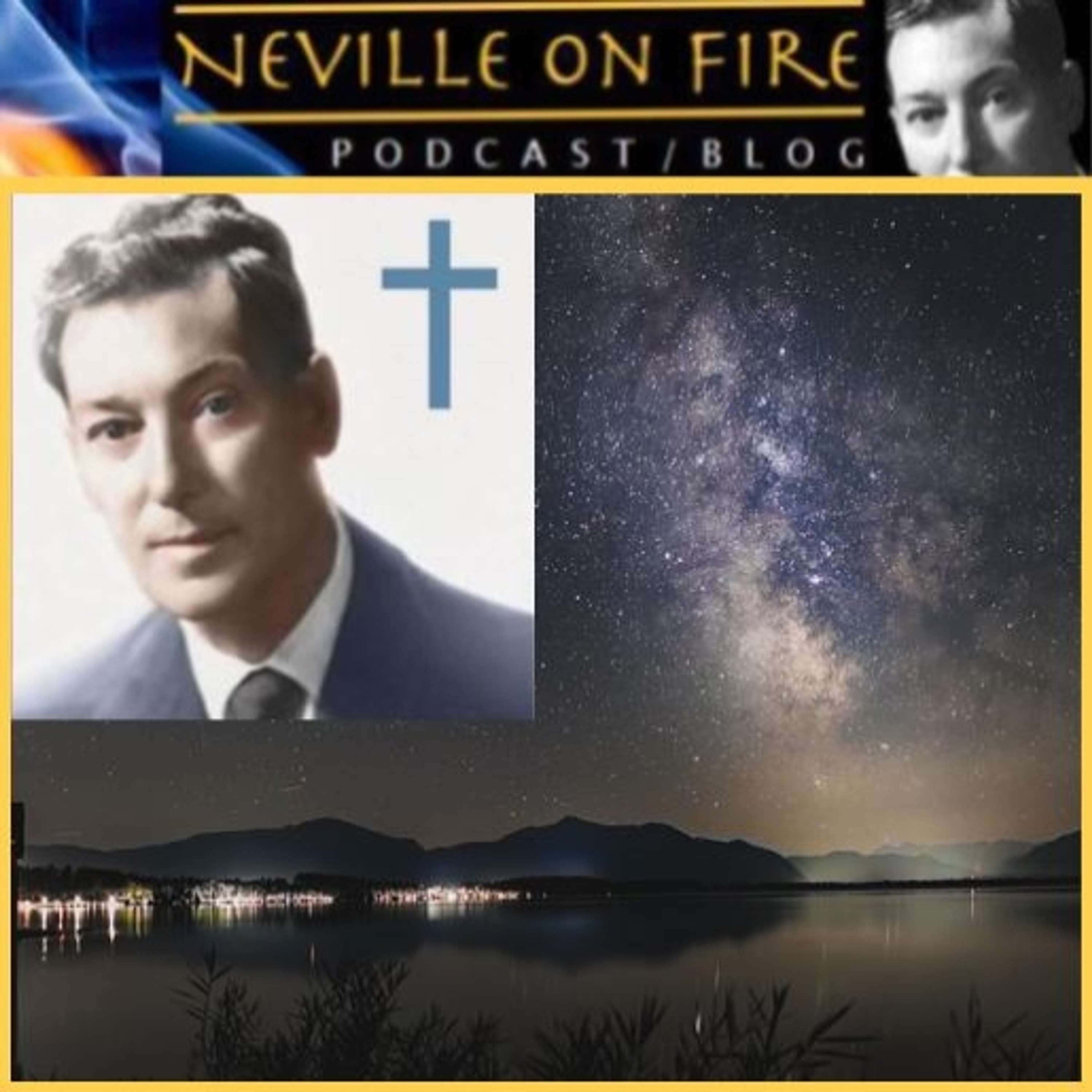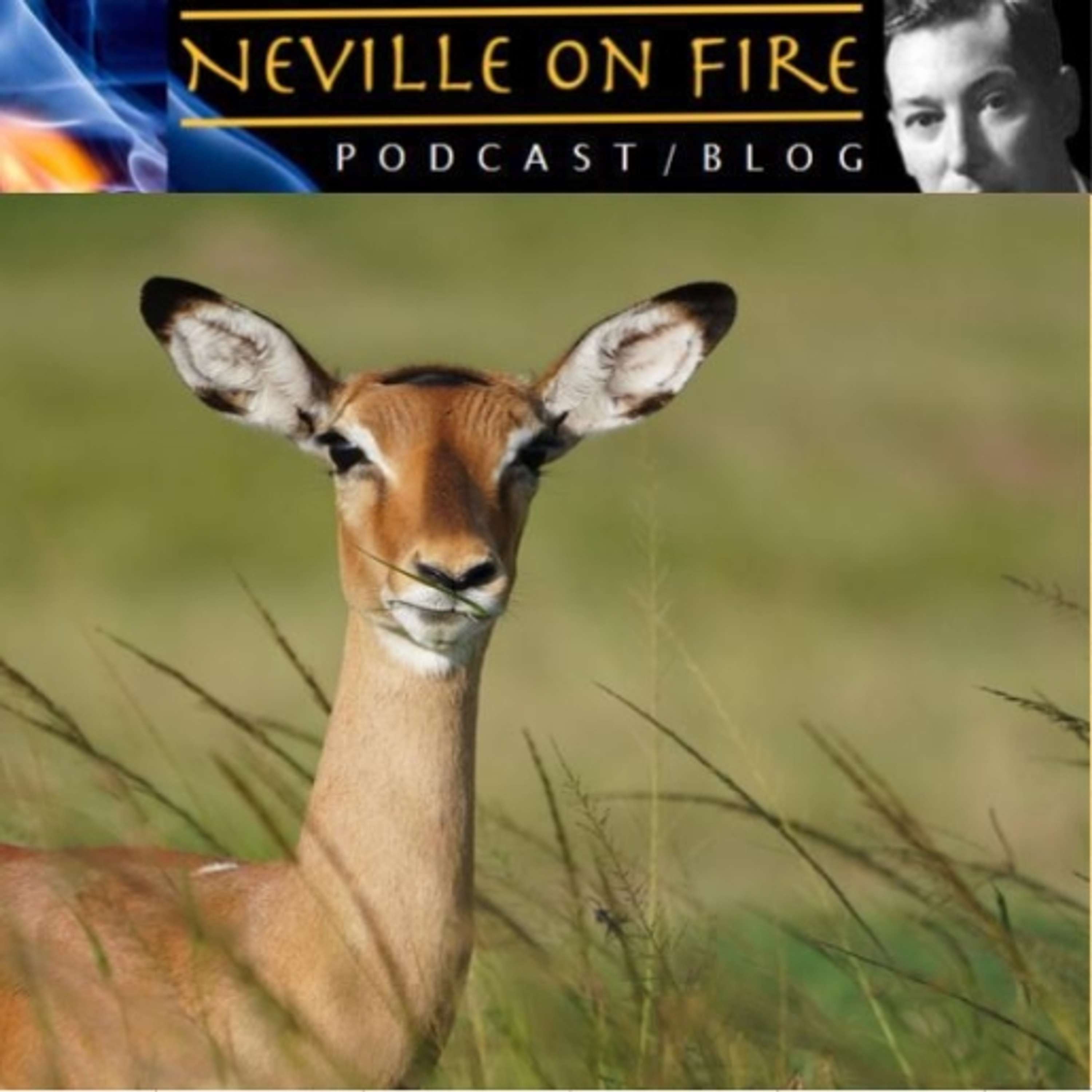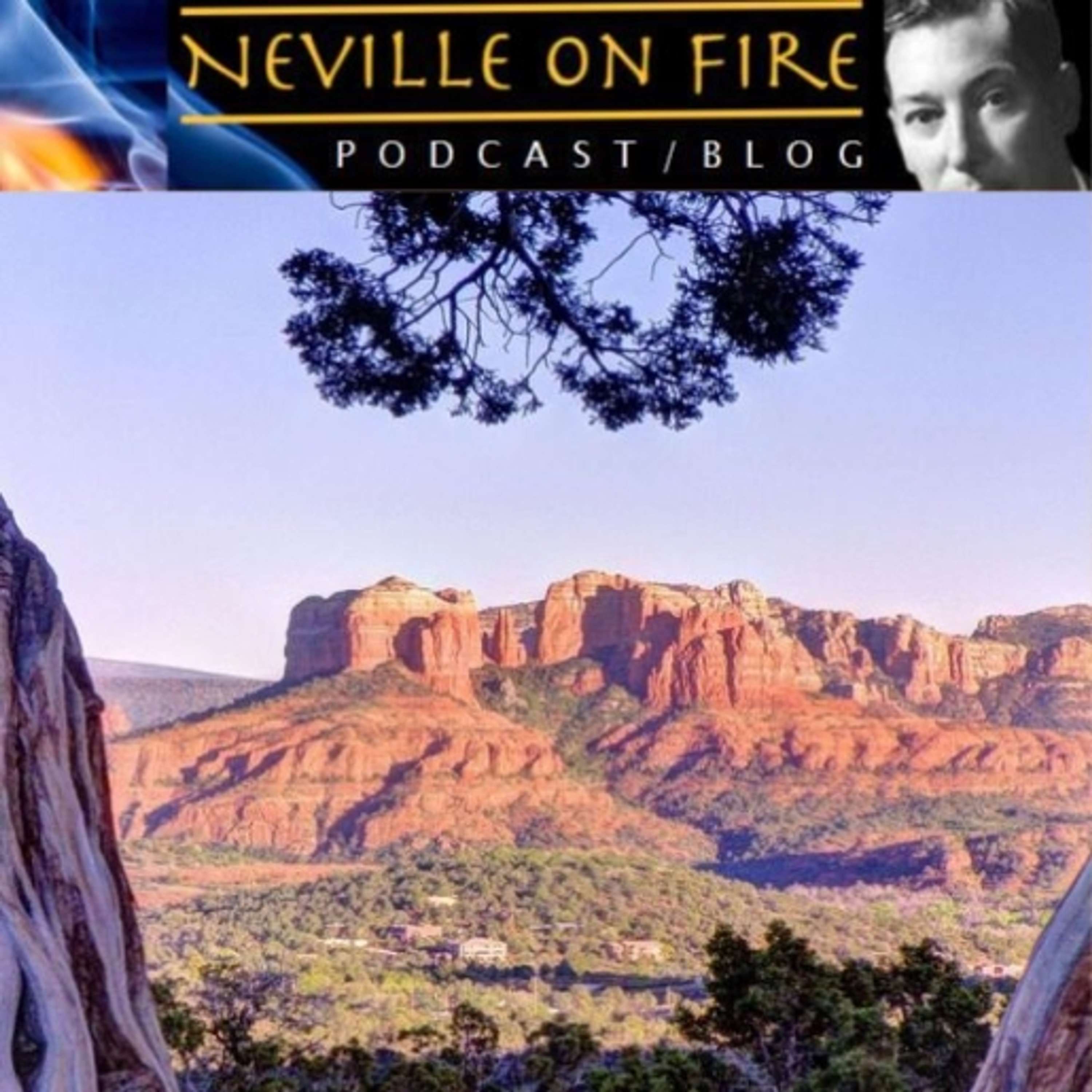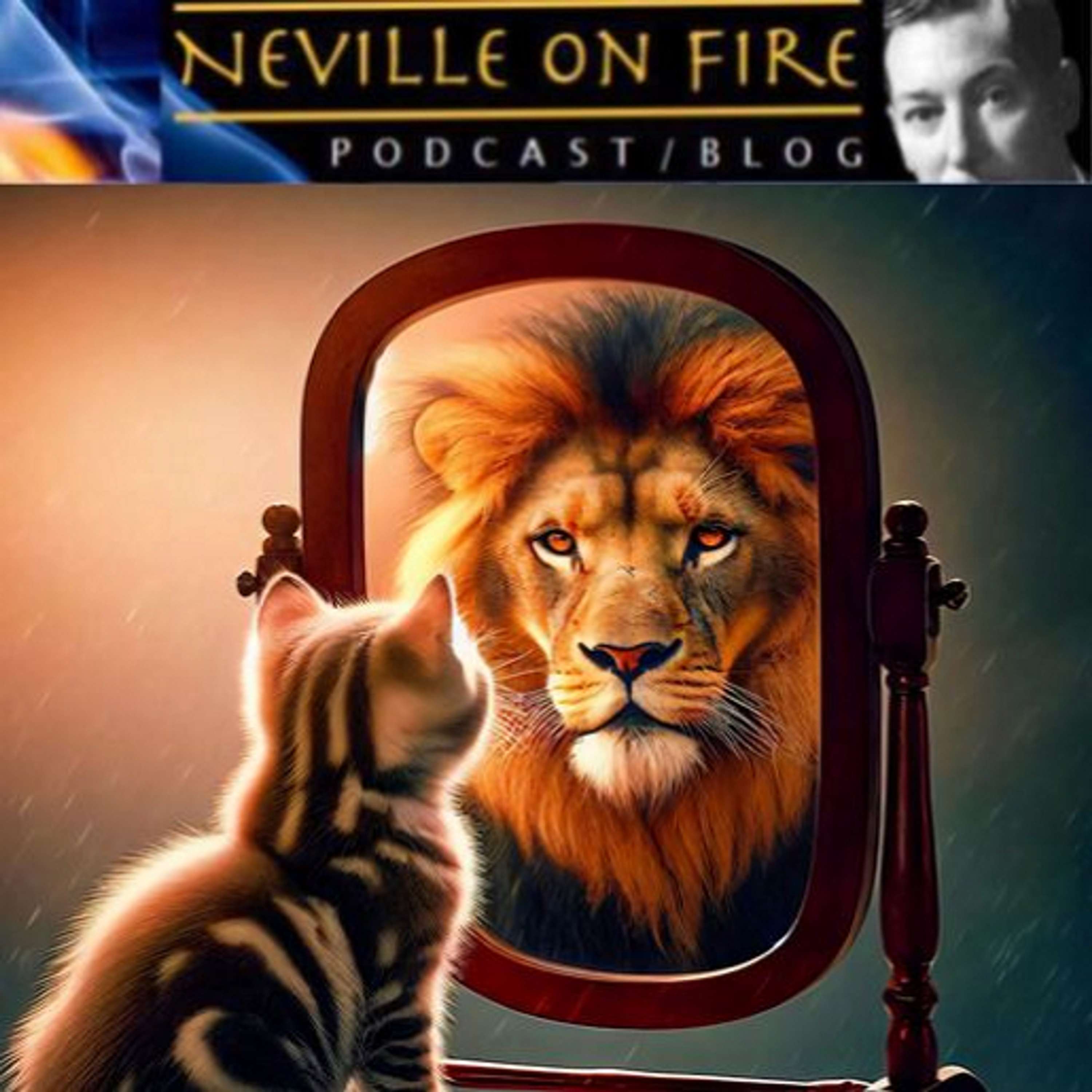Show Notes
Introduction
1. Recent reviews of first principles: self creation; meditation; appropriation of the wish fulfilled.
2. Possible results or refuges that we unwittingly fall into in failing to own our success.
3. All of these are unacceptable. Institutional training may prevent us from internalizing gains.
4. How to hold on to these gains when they seem to be destined to fade away?
5. An answer: the reversal from a passive to an active mind; to be consciously creative.
a. self creation on a personal level
b. affirmations in personal and broader spheres
6. Examples.
7. Conclusion: consolidate gains through the active mind and related creativity.
RESOURCES
Repeated:
Nicoll, Maurice (1952) Living Time and the Integration of the Life
Show Transcript
E16
[edited for clarity]
This is episode 16, How to Realize Spiritual Gains.
It seems that we're so inculcated in what Alan Watts called “put-down theories of man”, that is, we're so used to self deprecation, that when we actually succeed, we're in a strange territory. We don't know how to handle it. We sort of run the risk of sabotaging our own efforts. So in this episode, what I want to do is discuss how to permit, realize, and hold on to spiritual gains.
1. Recent episodes are a good lead up to this because we were discussing points of self creation, how to meditate, how to appropriate the wish fulfilled, and so eventually to acknowledge to ourselves our own gains, our own ability to manifest good in the world, and to regulate our own mental economy. Living more consciously undeniably gives you a standpoint where you realize that everything is a state of mind.
2. There are certain results that we've commented on before. We might fall into a sort of state of flatness or emptiness that is strange and unrecognizable. On the other hand, we might experience as a result of our efforts and our successes that we're on a high. But the funny thing is we don't really own that state of being on a high, not quite yet, because we sort of distrust it. We're so used to the ups and downs, the vicissitudes, that when we're on a high, we might feel that it's a bit like -- this is the way I heard it expressed -- like scaling a wall.
So in the background we're sort of nervous or fearful that the whole thing is about to collapse or fail. It's this habit of being in the vicissitudes that keeps us in this strange precarious state.
Now, yet another possibility, another possible result of gains or successes is that somehow you fall back into the comfort of being in a former state way of being or behaving, which you sort of recognize in yourself. That's the ironic thing about it. You'll never be innocently comfortable again in a previous state. You've lost your innocence because you have a level of awareness of being that you just didn't have before.
And then once you realize that, you might quite deliberately take up some sort of harmless pastime, which, as I've heard it express, is called “idiot relief”.
So there's at least three of the possible results or mental refuge that we take when we experience gains.
3. Really all of this is unacceptable. It is a sort of a means of giving oneself an excuse not to move on and claim the goal. It reminds me of when I was playing pool with my friend. After a long period of him beating me pretty much every game, in this one game, it was decisive. I was really on the winning track. But at the very end I choked and I didn't bring it home. And he said to me, well, you had my number.
So what is it in me that failed to go in for the kill? It's the same phenomenon here. It's the deep-rooted institutional messages I think that we have all imbibed that are telling us that we're nothing and we're not deserving of the goal. This is why understanding is every bit as important as making efforts. I'm sure you've heard of cases of instantaneous enlightenment. A shift in understanding to bring you to truth is possible.
Well, it was once expressed to me, gains are gains. It's quite as simple as that. Gains are gains, just like failures or failures. So if we permit the gains and acknowledge them, the question then becomes how do we hold on to them?
4. How to hold on to gains that are seemingly destined to fade away? This is an important thing to try to learn and try to cultivate within oneself. There's an externalization of this phenomenon in children who are starving. We see images of this on the television screen often. It's sort of a reflection, since the world is ourselves pushed out. I've heard it expressed that the new creation, the newly created being within ourselves, we starve, we don't feed it, we don't care for it properly. And so we keep experiencing death, not in a good sense, not the false personality dying away, but rather the newly born creation, the new conscious project that keeps dying on a regular basis.
So we have to stop that and learn how to maintain and hold onto gains.
5. What is the answer to this? Well, first of all, it's going to be impossible to overstate the importance of this and it's going to be difficult to address. But let me just suggest to start out that I think it has to do with the whole idea of reversal that we've referred to several times in different contexts.
That is a reversal in one's psyche from a passive to an active being. Here that calls to mind something that Maurice Nicoll talks about many times in his book Living Time, where he refers to the active mind. He refers to systems of psychology, even the medieval ones, that had a contra-distinction between the passive mind and the active mind.
So if you think of a human being, a person in their general state, as having a negative sign on them, sort of like a negative electron. What that means is they're simply accepting and being at the mercy of an external world that is impinging all of its influences upon that person. And yet this psychological reversal means that you've changed your sign from a negative to a positive. So you're consciously creating from within.
We're definitely unaccustomed, to put it mildly, to being constantly active, to having an active frame of mind and to be constantly creating. And that explains the reason for the need for idiot relief -- why we just have to try to give ourselves a break and somehow relax. But then again, that's where the release phenomenon comes in. We have to recognize when we're unwittingly releasing ourselves into a chaotic and feverish state of mind, unnecessarily. It is possible -- and normal -- to simply physically relax, and to non identify, that is mentally, psychologically relax.
All right, so if we accept the idea of having the positive sign on us, so to speak, in other words, having the active mind functioning and being positively creative, then there's a few aspects to creativity that enter in here.
The first one is on a personal level, to keep on releasing (in the Sedona method sense of the word) that is, to release negative aspects, to release even desires, and see where that leads. You continually relax, becoming more healthful and in general, experiencing well-being.
Then there's creativity in the sense of continuing the affirmations that we talked about. The affirmations both on a personal level, for our personal mundane goals, and then personal goals that might have more significance, more import. And then goals and objectives that have some sort of impact or effect on a broader, societal level.
Through all this, we teach ourselves to allow, accept and internalize the gains and successes that we experience in a continual process of self creation, of appropriating well being, appropriating, the state of the wish fulfilled. And I think this is all supported quite naturally in a creative lifestyle, a creative frame of mind, no matter what form that creativity eventually gives rise to.
6. Examples. A few examples come to mind that I found inspirational -- people who demonstrate a freedom from institutional constraints, people who show independence of thought. I won't bother putting links in the show notes because I'm not sure how relevant these examples will be for people. But if you do want to follow up, just go to the transcript and you can find out their names.
The first one I thought of was the guy who makes the white sparkling wine that I like, sort of an Australian champagne. His name was Wolf Blas, a German guy. And at a young age, he ran away from school. Well, right away that's inspirational. We find many people, many success stories that are fascinating and innovative and progressive come from people who ran away from school. And he was given a choice by his parents either to go back to school or to become a vintner. And so in the postwar period, for a German, you can imagine how difficult it might have been for him to go to the Champagne region in France and actually study the true method there. And that's where he learned his art.
The second example that has come up just recently for me is Jon Rappoport. He's an independent writer, a reporter. The extraordinary thing is that the title of one of his most recent podcasts is this: The Great Tradition of Imagination. Yes, he's talking about the same thing that we are. Although he doesn't make reference to Neville Goddard, he says that this tradition of imagination is the very root of civilization. It's the creative force that is not taught in schools. It's not discussed in popular culture. And he himself learned it from an individual, a healer that he had known back in New York in the 1960s. So if you want to check a fascinating take on the imagination from an unexpected source, go to Jon Rappoport and see his broadcast called The Great Tradition of Imagination.
There's a parallel here because, while he went to school, did not go to class, but rather spent his time in the art museum and in the library, checking out his favorite poets. In other words, he was self taught. The result of all that was he became someone who's an independent thinker. He stands outside the mainstream and reports on what he sees. He rejoices in the fact that he can publish freely without censure on Substack, and he inspired me to start my own channel there.
The final example is an Englishman by the name of John Searl, who died fairly recently. He was an electrical engineer. He didn't have formal schooling and yet was extraordinarily intuitive and skillful in all aspects of electrical engineering: electric motors and electromagnetics. The Midlands Electricity Board had hired him, back in the day, to be in charge of eleven different departments -- and that without a formal degree in electrical engineering.
Here's another example of someone who escaped the formal schooling system. In his case, unfortunately, it was just by virtue of the fact that he was abused, he was hit and knocked around as a child. The result of that was, through deafness, he was not able to hear what the teachers were saying, and started to conceive his own ideas instead. He was given inspiration in the form of dreams.
The result of all this was the creation of an electric generator which delivered electric current, and yet its input was nothing more than the ambient kinetic energy that's present in the atmosphere.
There's a strange parallel between his machine, his creation, the example of his life, and what we're trying to grapple with in today's episode, namely, how to realize, internalize and make permanent the psychological gains that free us from the constraints of institutions and ignorance, and from those who would destroy our liberties, destroy our possibilities to actually become self-realized.
Well, if you agree that creativity, in some form or other, is an answer, then you can take some inspiration from this author. His name is Eric Maisel, and he's a specialist in creativity. He says: “When you become an everyday creative person, you instinctively solve problems more easily. See the world as a richer place and enjoy life more, you get to use capabilities and skills that may be hidden under a barrel...If you're a writer or a would-be writer and begin to unleash your creativity, you write more deeply and more frequently. If you're a painter or would-be painter, you paint more personally passionately and authentically” and so on. This is from The Creativity Book.
Well, creativity is wonderful, but keep in mind that I suggested creativity not for its own sake, but rather as a way to maintain the active mind. Maurice Nicoll explains by saying that “ordinarily there is no true feeling of self existence, of life in oneself, because the world is outside us and our feeling of existence comes from the changing feelings of pleasure and pain derived from our contact with it...” Whereas “the truest feeling of self existence is connected with a form of consciousness in which the time sense is altered” -- and that is the self aware, active mind.
Here's a summary of the points that we covered today. When we experience spiritual gains or successes, we tend to find that strange territory. And so we run the risk of sabotaging our own efforts, unless we learn how to actually permit these gains, and to teach ourselves how to hold on to them. The most recent episodes in meditation and self creation are relevant to this discussion. The weirdest things happen when we experience some success. We could have that state of unrecognizable emptiness or flatness. We could be on a high, and yet somehow we distrust it because we think the whole thing is going to start on a downturn again. Or we could actually fall back into a former state, but still, we'll never be comfortable in that former state: we try desperately to find some harmless activity where we can still just remain passive and be entertained.
After a while, you realize that this is all really sort of running away - an excuse to not claim the victory in our efforts to realize good things in the world. The answer -- or at least an answer -- in a general sense, is to reverse one's psychology from a negative, passive way of being to a positive, active way of being. And that, in a word, means creativity. Be creative on a personal level, both within the sphere of your own personal interests, and for others in the broader social sphere as well. Finally, we gave a few examples of people who had disparate careers, and yet they had points in common. Namely, they escaped the institutional pressures of the education system and other aspects of society. They grew to be creative, accomplished, independent thinkers!
Listen On
Also Listen
-

Who is Man? Neville’s Radical Answer
Book draft chapter 1. S1E01 revised, inviting your comments.https://nevilleonfir -

The Power of Noticing: How to Interrupt Mechanical Life
Conscious intervention is required for psychological growth. -

Let Go to Move Ahead: Neville and Sedona
First, review of first 15 episodes Season 2. Then explore incremental psychologi -

Conscious Self Persuasion
Science tries to define consciousness where it does not exist, and hypnosis whil


Comments & Upvotes